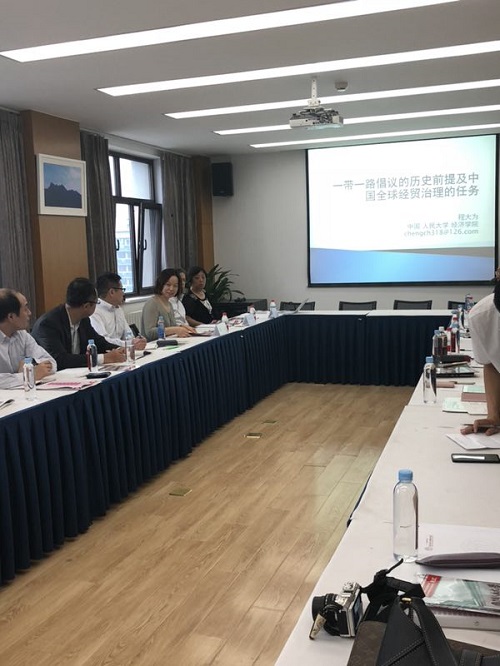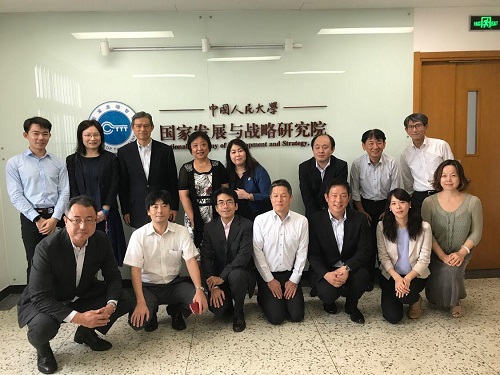 Research Update
Research Update
13
SeptemberSince the reopening of the dialogue between the Chinese and Japanese finance ministers in May 2017, the Japanese side has shown a positive attitude toward China’s “Belt and Road” Initiative. Recently, in the seventh meeting of finance ministers held in Beijing, the two sides conducted in-depth discussions on cooperation in third-party markets. In this context, on the morning of August 30, 2018, the Japan Research Center of the National Academy of Development and Strategy of Renmin University of China held a seminar on “Trade Governance and Sustainable Development under the BRI Framework”. At the meeting, Ms. Cheng Dawei, a research fellow of NADS and a professor at the School of Economics, and Mr. Joshi Jiro, the special adviser to the United Nations on environmental planning and financial innovation, delivered speeches.

Professor Cheng Dawei’s speech titled “The Historical Premise of the Belt and Road Initiative and the Task of China’s Global Economic Governance”. The speech mainly involved three aspects. First, the historical background of the “Belt and Road” is the imbalance of globalization and the reversal. On the one hand, there is an imbalance between countries, which leads to contradictions between poor and rich countries; on the other hand, economic imbalances within the country, mainly manifested by imbalance between rich and poor. The US trade war against China is actually a manifestation of the shifting internal problems to the outside. Of course, there are also some problems within China that need to be adjusted. Second, the governance philosophy of BRI is to oppose US unilateralism and uphold multilateralism. In the form of embedded multilateralism, while respecting the basic principles of multilateralism such as MFN status, it emphasizes policy docking, finds the point of cooperation between the two sides, and gradually completes the multilateralization of the “Belt and Road”. Third, the economic logic of the BRI is to integrate some developing countries into the global value chain to help them achieve industrialization, rather than trapping them in resources and becoming a source of raw materials for some countries. Therefore, it will fundamentally solve the development problem and achieve a win-win situation.
The title of Mr. Joshi Jiro’s speech is “Promoting Sustainable Development through International Cooperation”. Mr. Joshi Jiro first reviewed the tremendous progress made by China and Japan in economic and social exchanges during the 40 years after the signing of the China-Japan Friendship Peace Treaty in August 1978, and then analyzed the urgency and specific means of sustainable development of the global economy. Social problems such as poverty and health and global warming are two important crises that threaten global sustainable development. To solve these problems, first of all, large multinational companies have to play an active role. In this regard, Unilever, Apple, Google have made many efforts. Secondly, through the cooperation of the international community to promote sustainable development issues, such as the Paris Agreement has made positive progress in reducing carbon emissions, the United Nations promoted SDGs (Social Sustainable Development Goals) project has had a wide-ranging impact. Mr. Joshi Jiro also highlighted the concept of promoting sustainable development through green finance, and introduced the “responsible investment principle” signed by some financial institutions in the EU and Japan, that is, investment must pay attention to environmental, social and corporate governance.
